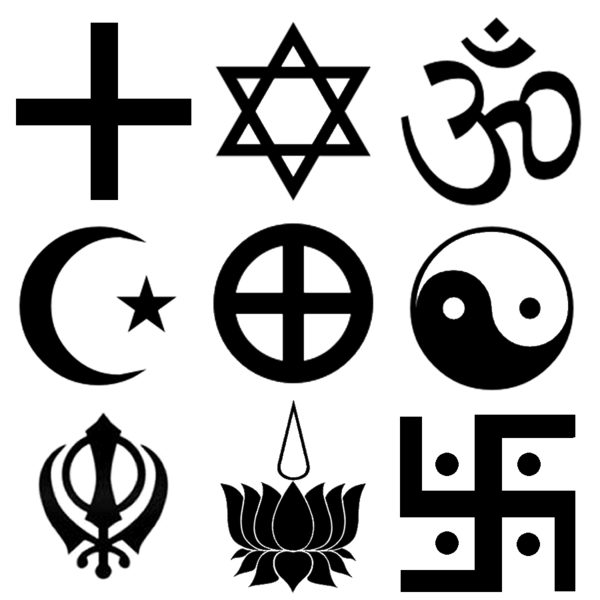Trinidad and Tobago, a twin-island nation nestled in the Caribbean, presents a fascinating tapestry of religious practices and beliefs. This intricate diversity is profoundly influenced by the islands’ rich history, which includes the legacy of colonialism, the transatlantic slave trade, and the subsequent immigration patterns that have shaped its contemporary society. From the vibrant expressions of Christianity to the myriad of other faith traditions, Trinidad and Tobago is a microcosm of cultural and religious pluralism in the Caribbean.
Christianity stands as the predominant religion in Trinidad and Tobago, comprising a variety of denominations that reflect both the historical influences and the contemporary dynamics of the islands. The most significant branches include Roman Catholicism, Anglicanism, Pentecostalism, and a range of other Protestant denominations. Each of these groups contributes uniquely to the spiritual landscape of the nation, offering a plethora of perspectives and practices to the local community.
The Evolution of Christianity in Trinidad and Tobago
The introduction of Christianity to Trinidad and Tobago can be traced back to the arrival of European colonizers in the 15th century. Initially, the Catholic Church was the primary instrument of evangelization, laying the groundwork for the spiritual life of the islands. As more settlers arrived, they brought their own religious affiliations, leading to the establishment of various Christian denominations. This history is crucial for understanding the syncretic nature of faith in the nation today, where traditional beliefs often intermingle with Christian doctrines.
Denominational Diversity
The Roman Catholic Church holds a significant position within the religious landscape, serving as a spiritual anchor for countless families. With elaborate rituals and celebrations, including Carnival—an event steeped in both secular and religious significance—the Catholic community embodies a unique blend of cultural expression and faith practice. Furthermore, the Catholic Church plays an active role in social initiatives, emphasizing charity and community engagement.
Protestant denominations also flourish, with various groups such as Baptists, Methodists, and Presbyterians sharing their doctrines with enthusiasm. Their emphasis on personal faith and community worship has given rise to many vibrant congregations, drawing adherents from all walks of life. The incorporation of gospel music and lively worship styles engenders an atmosphere of joy and celebration during religious services, contributing to a sense of belonging among practitioners.
Among the notable trends is the rise of Pentecostalism, which has significantly influenced religious life in the islands. Characterized by its fervent expressions of faith, including speaking in tongues and spiritual healing, Pentecostalism appeals particularly to the youth demographic. The energetic worship experiences resonate with many, creating an environment that promotes spiritual transformation and active community engagement. This movement has also been instrumental in the creation of numerous churches across both islands, reflecting the global Pentecostal revival.
Interfaith Dialogue and Cooperation
Despite the profound Christian presence, Trinidad and Tobago is home to a multitude of other religious traditions, including Hinduism, Islam, and indigenous beliefs. This diverse array encourages a spirit of interfaith dialogue and cooperation. Religious leaders and communities frequently engage in collaborative efforts aimed at promoting understanding, respect, and harmony among differing faiths. Festivities such as Divali, Eid, and Christian holidays are celebrated with mutual attunement, underscoring the necessity for inclusivity and respect within the broader societal context.
In this environment, religious pluralism is embraced rather than merely tolerated. The coexistence of myriad faiths cultivates a rich dialogue exploring moral values, ethical principles, and social responsibilities. This dynamic offers the possibility for broader community engagement and an enhanced sense of shared humanity.
The Role of Religion in Society
Religion in Trinidad and Tobago extends beyond individual beliefs and rituals; it significantly influences societal norms and values. Many Christian organizations partake in active social justice initiatives, addressing issues such as poverty, education, and healthcare. Churches often play a pivotal role in providing essential services and support, fulfilling spiritual as well as practical needs in their communities.
Moreover, the festive celebrations associated with various Christian holidays provide opportunities for communal bonding. Events such as Christmas and Easter are steeped in tradition and fellowship, fostering a sense of unity among participants. These occasions not only strengthen family ties but also promote intergenerational connections through shared customs and rituals.
The Future of Religion in Trinidad and Tobago
As Trinidad and Tobago continues to navigate the currents of globalization and modernity, the future of religion on the islands remains vibrant and transformative. The interplay between tradition and contemporary expression will undeniably shape the religious landscape going forward. Young people, in particular, are engaging with faith in innovative ways, often using technology and social media platforms to explore spirituality and connect with diverse communities.
Ultimately, the religious tapestry of Trinidad and Tobago is emblematic of the broader Caribbean experience, where diversity and unity coexist in a delicate balance. As various faith traditions continue to evolve, the Christian perspective remains integral, contributing to the moral and ethical foundations of society. The challenge lies in fostering an environment of respect and understanding, ensuring that the rich heritage of religious pluralism is woven into the fabric of national identity for generations to come.



